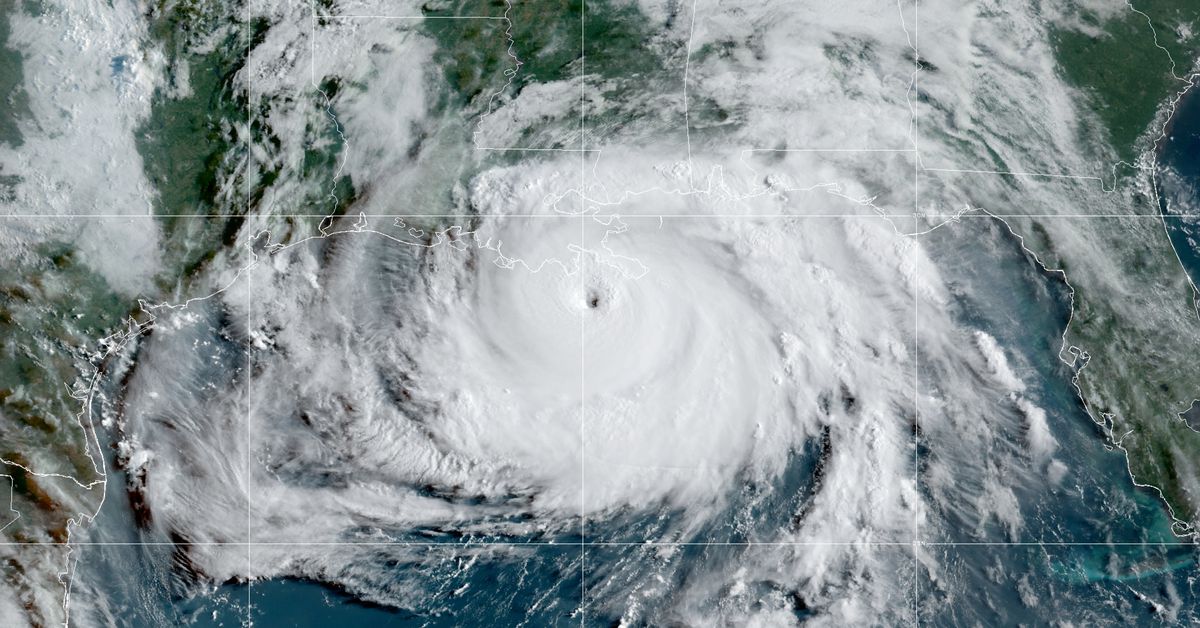Hurricane "Ada" struck, crude oil production was cut, and oil prices rose sharply

In the early morning of last Sunday, the Louisiana Offshore Oil Port (LOOP) announced the suspension of crude oil transportation due to Hurricane Ida.
In addition, oil and gas exploration and exploitation companies in the U.S. Gulf of Mexico and refining and chemical plants along the coast have stopped production in preparation for Hurricane Ida.
As of 6 pm Eastern Time on August 29, according to the official website of the PowerOutage.US project that records power outages in various places in the United States, a total of 504,149 customers in Louisiana have lost power in the past 90 minutes. The number of outage customers increased by more than 100,000. As Hurricane "Ada" moves to the interior of the United States, the number of users with outages is expected to continue to increase.
As of last Saturday, commodities had their biggest gains in 10 months, as Hurricane Ida threatened the U.S. oil, natural gas and fuel supplies, and crops around the world also suffered drought, frost or untimely rain; the commodity index rose. 5.7% is the biggest weekly increase since October last year, reaching the highest level since the end of July.
In the oil market, WTI crude oil futures rose more than 10% last week, the biggest weekly gain since June 2020. At the opening on Monday, Brent crude oil rose by 1 U.S. dollar in a short-term, and is now at 73.64 U.S. dollars per barrel, up 1.20% in the day.
Edward Moya, senior market analyst at OANDA, said:
"Energy traders are pushing crude oil prices higher because they expect production in the Gulf of Mexico will be interrupted, and considering the recent impact of Delta on crude oil demand, OPEC+ may resist increasing production."
According to data from the US Bureau of Security and Environmental Enforcement (BSEE), the U.S. Gulf region shut down 95.65% of crude oil production (or 1.74 million barrels per day) and 93.75% of natural gas production (or 2090.7 million cubic feet per day).
Among them, the oil companies that shut down oil and gas production capacity include: BP, Shell, Statoil, BHP Billiton, Murphy Oil, Chevron, and ExxonMobil.
Royal Dutch Shell Plc, the largest oil producer in the Gulf of Mexico, said it has suspended production of seven offshore platforms and two onshore processing plants. BP Plc stopped operations on four platforms. Both companies said they are evacuating marine workers.
Chevron Corp. said it will shut down the production of six rigs in the Gulf of Mexico and evacuated all workers. In addition, according to spokespersons for BHP Billiton (BHP) and Statoil (Equinor), these two companies have also evacuated workers from offshore facilities.
In the early morning of Monday (August 30), the National Hurricane Center stated that the eye of Hurricane Ida is moving towards southeastern Louisiana, and there will be catastrophic storm surges and flash floods in parts of the state. break out.
On August 29 local time, the office of the Governor of Louisiana, John Bel Edwards, issued a press release stating that due to the continued major impact of Hurricane Ida, Edwards Ask Biden to issue a major disaster statement. Hurricane Ida was one of the strongest storms ever to hit Louisiana.
Currently, the state has pre-deployed search and rescue teams, ships, and other resources to help local agencies and people in the state under safe conditions.
At the same time, the American Colony Pipeline Company stated that the pipeline from Houston, Texas to Greensboro, North Carolina will be temporarily closed after Hurricane Ida makes landfall.
Phil Flynn, a senior market analyst at Price Futures Group, said that this storm may become a "destructive hurricane" and may follow the path of Hurricane Katrina.
In mid-August 2005, during Hurricane Katrina raging in Louisiana, oil supply fell by 1.53 million barrels per day. Due to damage to the platform and refinery, production interruptions continued for several weeks. The overall economic loss caused by the hurricane was as high as 200 billion U.S. dollars, making it one of the most devastating hurricanes in the history of the United States, killing at least 1833 people.
In addition, since the OPEC+ meeting will be held this Wednesday (September 1), institutional analysis indicated:
"As the market stabilizes, the next move to increase crude oil production by 400,000 barrels per day as planned will largely depend on OPEC+'s decision at the September 1 meeting. Previously due to the decline in oil prices, the market speculated OPEC+ The next production increase plan may be frozen. As the market stabilizes, Saudi Arabia and its partner countries are more likely to take a middle ground; according to the original production increase plan, another 400,000 barrels per day production capacity will be restored, and hope that this will be enough It will help recovery in the event of a derailment."
It is worth mentioning that after Hurricane Ida made landfall, US President Biden returned to Washington from Dover Air Force Base and stopped at the Federal Emergency Management Agency headquarters.
In the early hours of Monday morning, US President Biden stated:
"The U.S. government is planning to deal with the worst consequences of the hurricane and will do its utmost to carry out rescue and recovery work. It is expected that Hurricane Ida will have a catastrophic impact and may threaten people’s lives. After Ida fades, it may take several weeks for some areas to restore power."



